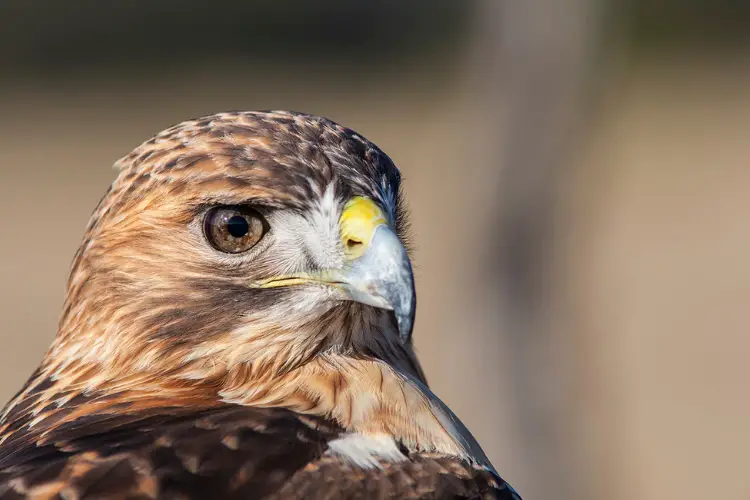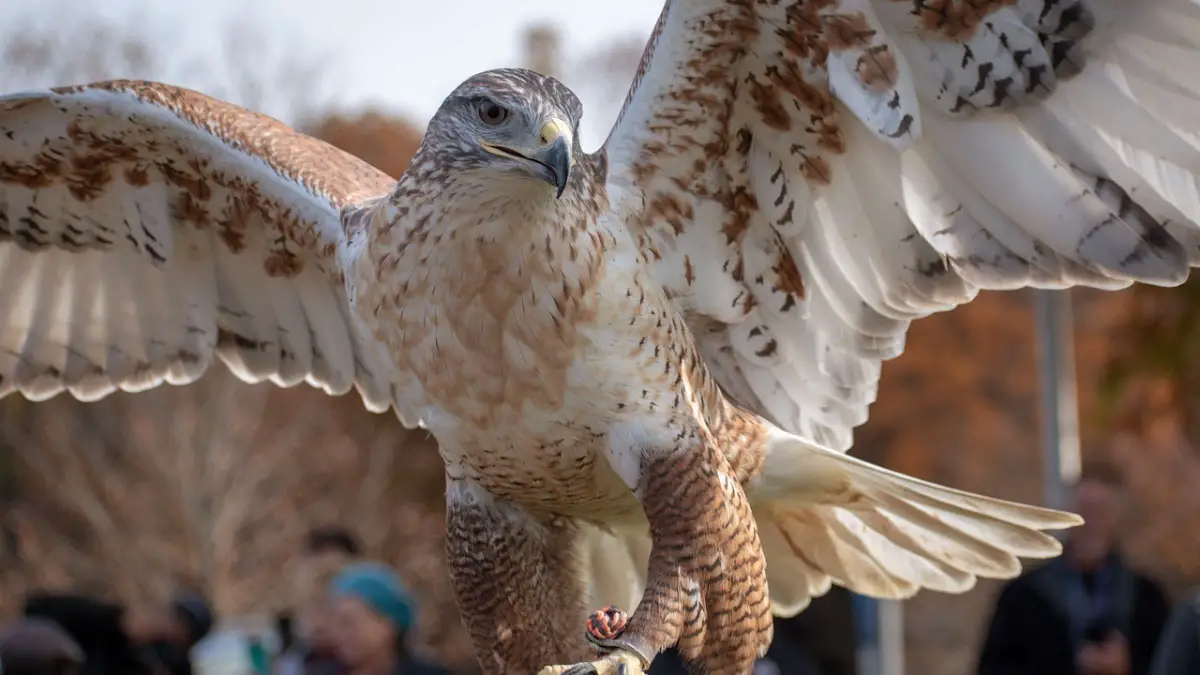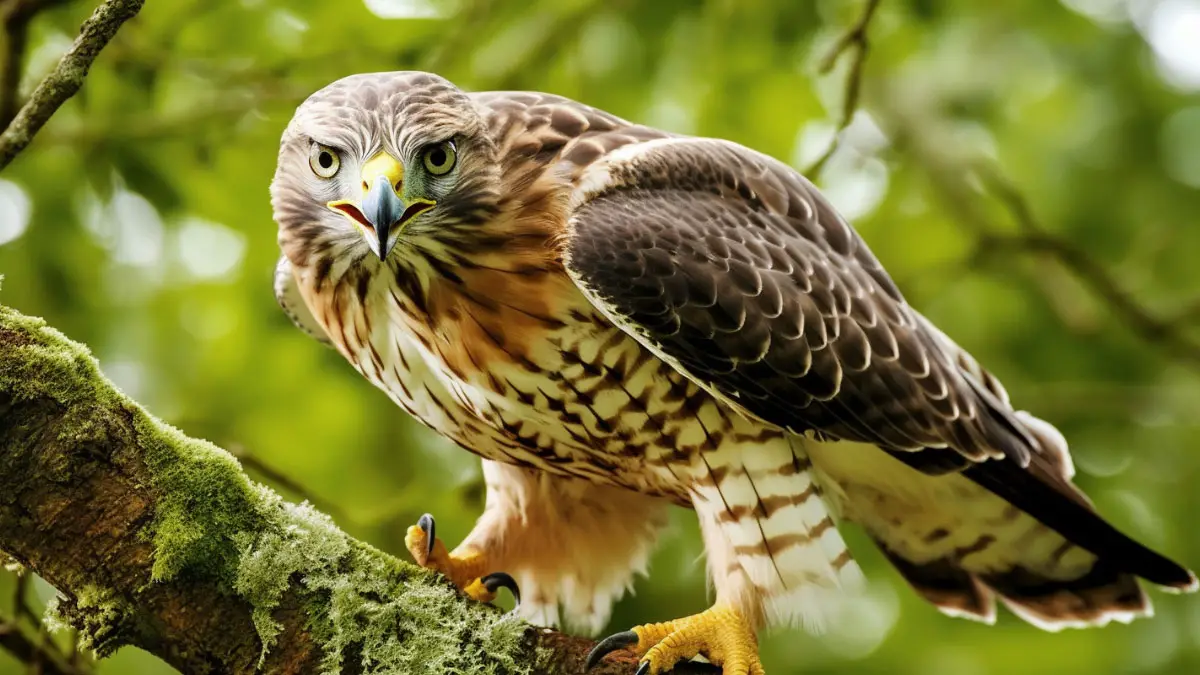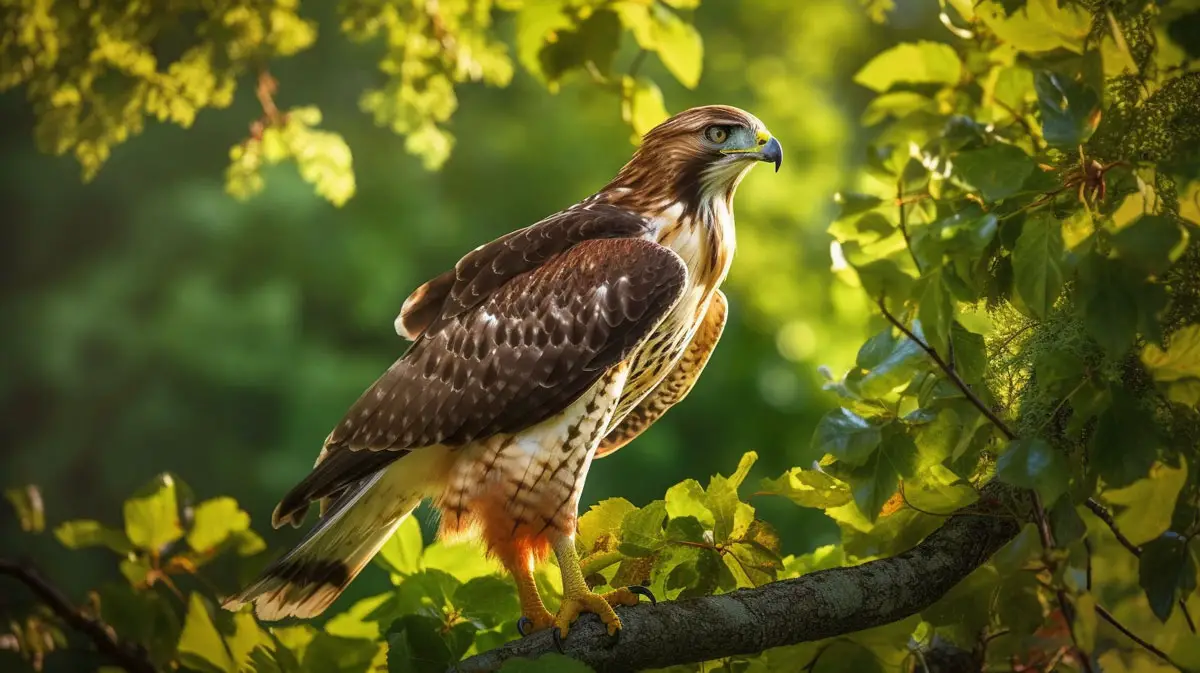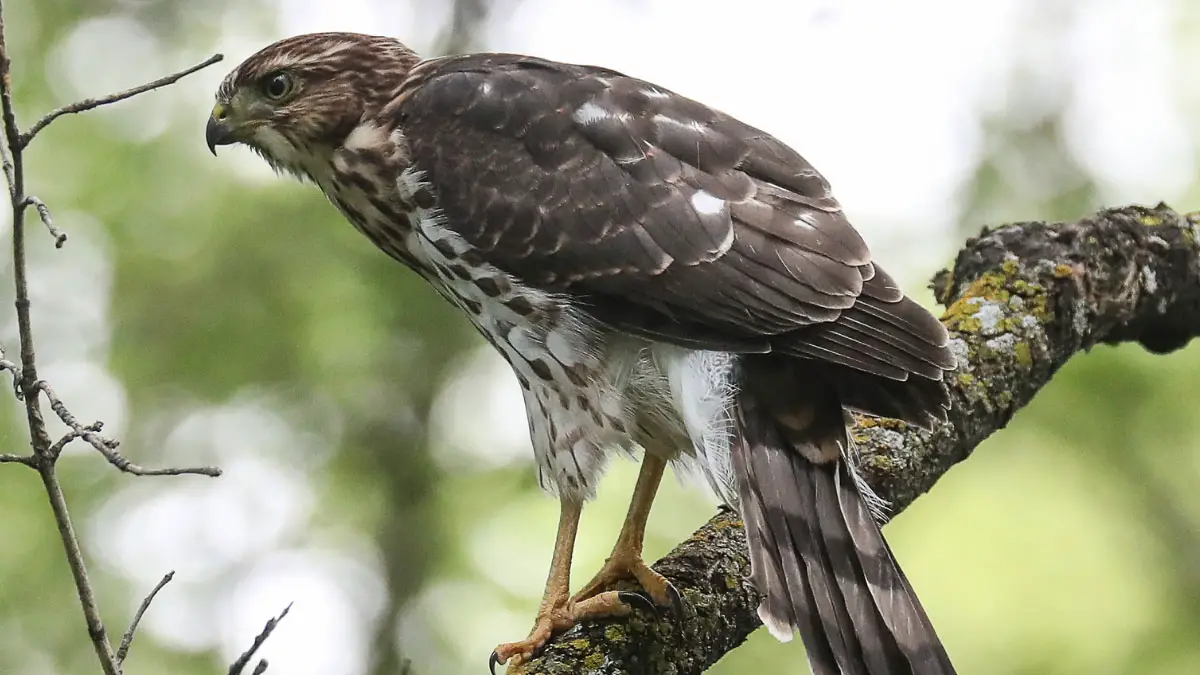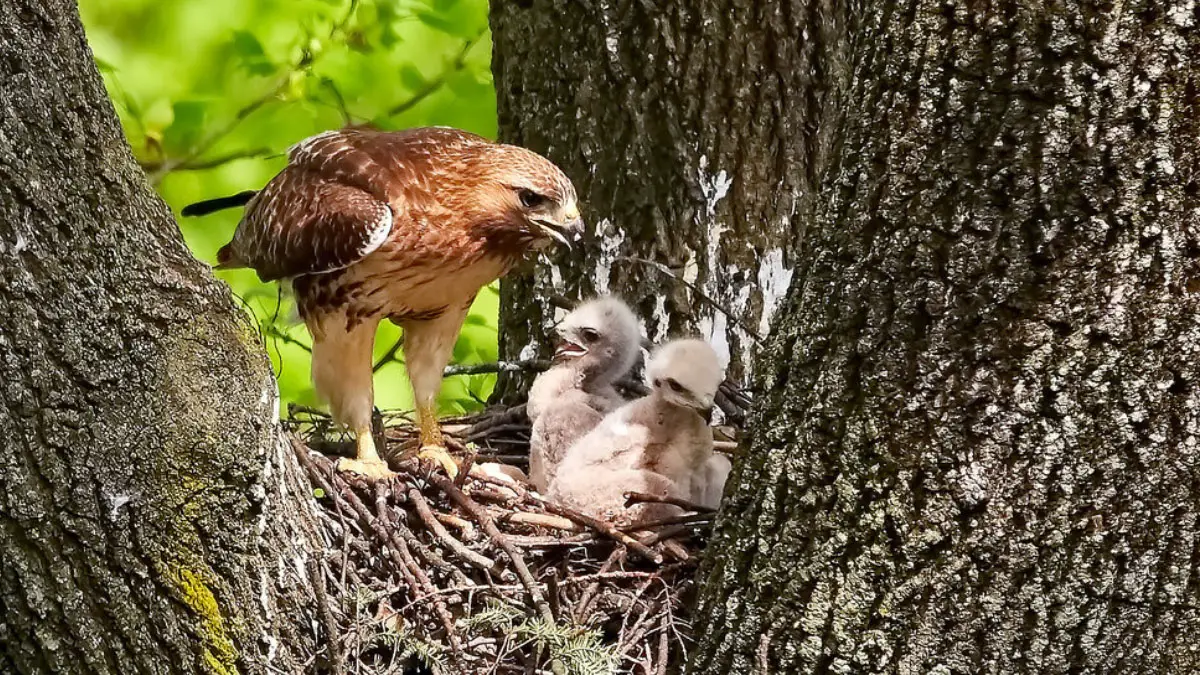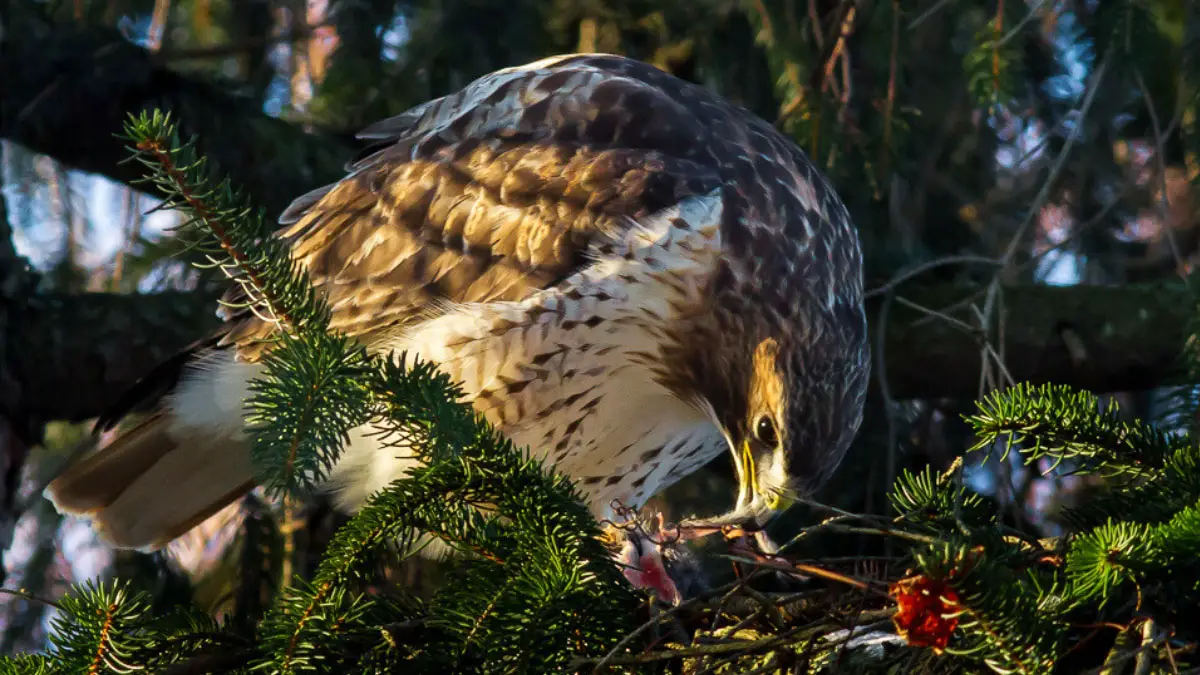You might have seen hawks diving at lightning speed to catch their prey all of a sudden from the blue. Have you ever asked yourself how a hawk sees its prey from such a height?
Do hawks have good eyesight? Hawks have one of the best eyesight among all animals. On the human scale, we have a 20/20 vision without any illness. But hawks have 20/4 or 20/5 vision, which is four to five times better than humans. Hawks not only see from a greater distance than humans but also have excellent color vision. And their visual acuity is about eight times better than humans.
We will elaborate on things below to bombard you with amazing facts about the hawks’ vision. Let’s get started.
Do Hawks Have Good Eyesight?
This sharp-beaked, diurnal bird has one of the best visions in the world. We humans can’t even go close to this bird when it comes to seeing things from a distance or with clarity.

How good is the eyesight of a hawk compared to a human? And why is it so? We will discuss things based on several parameters starting with a simple vision.
How Far Can Hawks See?
If we get back to the human vision, a perfect vision is defined as 20/20. It denotes the subject is standing 20 ft away from the object and is seeing the object clearly.
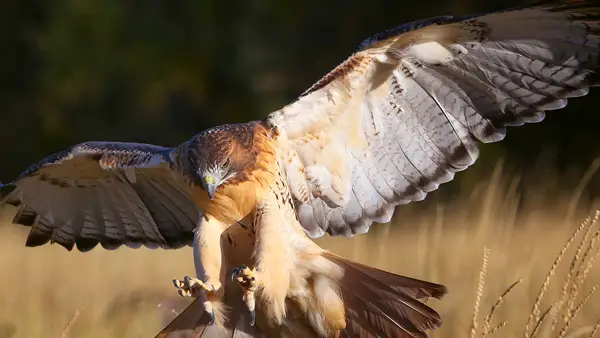
So, a normal human without any eye problems will clearly see an object placed at a distance of 20 ft. A hawk will see the same object from 100 ft away. This clearly shows a hawk has five times better vision than humans when it comes to seeing an object or prey from a distance.
Why Do Hawks Have Such a Good Eyesight?
Not only hawks but also all birds of the orders Falconiformes have extremely good eyesight. So, what’s the reason behind the excellent eyesight and high acuity? The first anatomy responsible for this can be the large eyes of hawks.
But this is not the only reason. The density of cone photoreceptors is high in hawks compared to other diurnal raptors. Their retinas have regular rods with double cones. And there are four special single cones of spectral type. The density of these single cones isn’t the same everywhere.
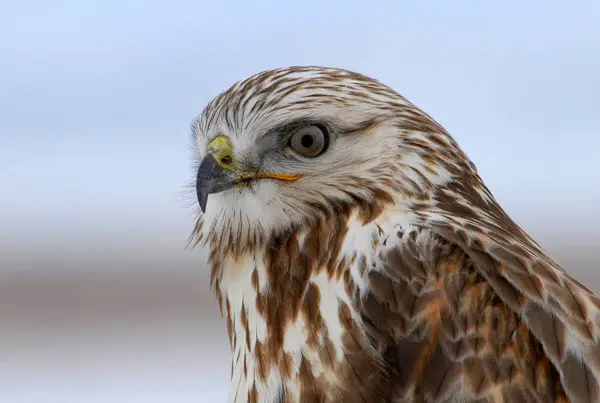
In a special region called foveae, the density of the single cones is the highest. For this reason, hawks have excellent visual acuity, which is two to five times better than humans. An interesting fact is this visual acuity is about six times better than ostriches, whereas those big birds have the largest terrestrial eyes among all animals.
Field of View Comparison: Hawks vs Human
The visual field configuration in hawks and humans is quite different. First of all, let us clarify the concept of the visual field. It is the space around the head from where the eyes can collect visual information. In simple words, the space our eyes can cover with their sight is called the field of vision.
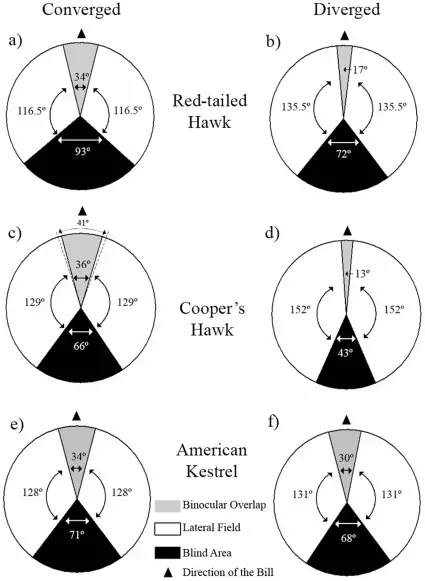
If you see the diagram in this research, you will find out that the field of view of hawks is about 278 degrees. Each of their eyes will see a space of about 122.5 degrees. The overlap between their eyes is about 33 degrees.
In humans, the field of view is only about 200 degrees. And the overlap between two eyes is also much greater than hawks at 100 degrees. So, hawks can see better than humans when their eyes are at rest.
Do Hawks Have a Better Peripheral Vision?
Peripheral vision is also known as indirect vision. When we see things that aren’t directly in the line of our sight, it can be expressed as peripheral vision. For example, you might look forward and see your friend punching you from the sides of the corner of your eyes.
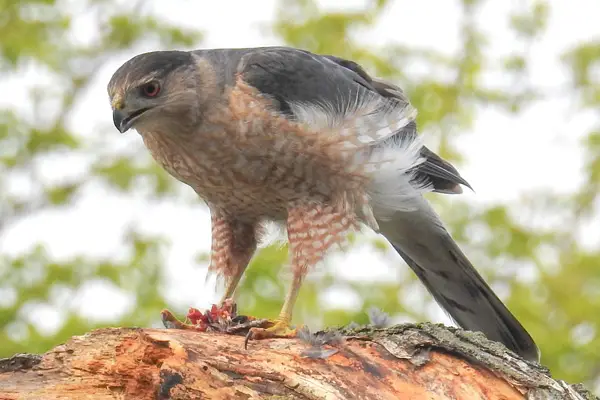
When it comes to peripheral vision, hawks have much better eyesight than humans. It means hawks don’t need to move their eyes to see something on their sides. As a result, they can cover a greater area with their vision that humans can’t.
Why Do Hawks Have a Better Peripheral Vision Than Humans?
The answer to this question lies in the anatomy of the hawks’ eyes. As we have already mentioned, hawks have specialized single cones in their eyes. A small depression in the retina where the density of these cones is the highest is known as the foveae.
Humans only have a central fovea in the back of their eyes, which limits their peripheral vision. There are two foveae in each eye of hawks. One is for binocular vision, and the other is for peripheral vision. As a result, they have better peripheral vision than humans.
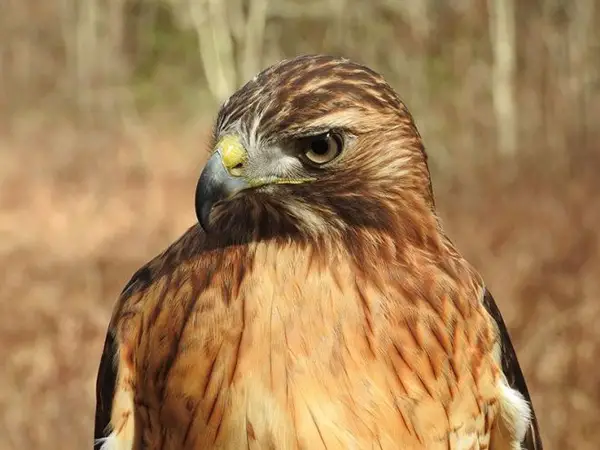
Another big reason for this is the position of the eyeballs. Humans have eyeballs located in the front of the head. So, we mostly see things that are in line with our vision. Seeing something in the corner of our eyes is quite difficult.
As the eyeballs of a hawk are positioned on the sides, this gives them a greater field of view with a better peripheral vision than humans. They need to move their eyes less than humans to see an object located at the same angle.
Also read: Do Hawks Eat Doves?
Do Hawks Have a Better Color Vision Than Humans?
You might assume that hawks might not see as many colors as humans even if they see from a greater distance. We aren’t sorry to correct you that hawks have a much better color vision than humans. Where humans can see only about one million color shades, hawks will see more than one hundred million shades.
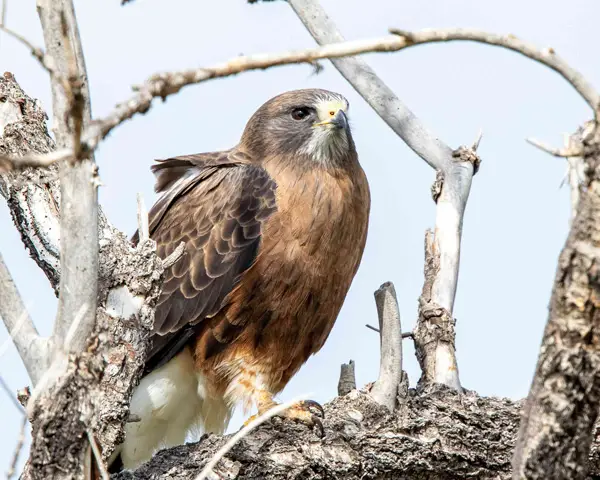
Why Do Hawks Have a Better Color Vision Than Humans?
Humans have three different types of cone cells. These cells can register three primary colors such as red, green, and blue. So, the vision of humans is known as trichromatic vision.
Each of the cone cells can recognize about 100 color shades. So, this will be a total of one million color shades in total, considering all cone cells.
Hawks, on the other hand, have four cone cells, and this is why their vision is called tetrachromatic vision. Besides three types of cone cells for base colors like red, green, and blue, hawks have specialized cone cells to see ultraviolet light.

The wavelength of ultraviolet light is smaller than visual light, and humans can see this light with bare eyes. But as hawks have special receptors for ultraviolet light, they can clearly see this light. And their four cone cells can see a combination of about one hundred million color shades.
FAQ
The above discussion should meet almost all of your queries. Still, we tried to answer some of the most commonly asked questions. Check them out.
Though all hawks have excellent vision, a species called Harris’s hawk is known for having the best eyesight among all hawk species.
Like humans, hawks have blind spots too. But as their field of view is greater than humans, the blind area will be much lower. Depending on their species, they can have a blind spot of 60-80 degrees.
Depending on the size of the target, hawks can see from a distance of about one mile. In optimal conditions, this distance can be extended to one and a quarter miles.
Related: Why Are Hawks Federally Protected?
Conclusion
As predatory birds, hawks have amazing eyesight, which is the best among all birds. But when we compare their vision with humans, hawks tend to have four to five times better vision than humans.
This is not only better in terms of distant vision, but also hawks have better peripheral vision and color vision than humans. The special anatomy of the hawks’ eyes makes their eyesight so excellent that they can see their prey from a mile away before diving onto it.
